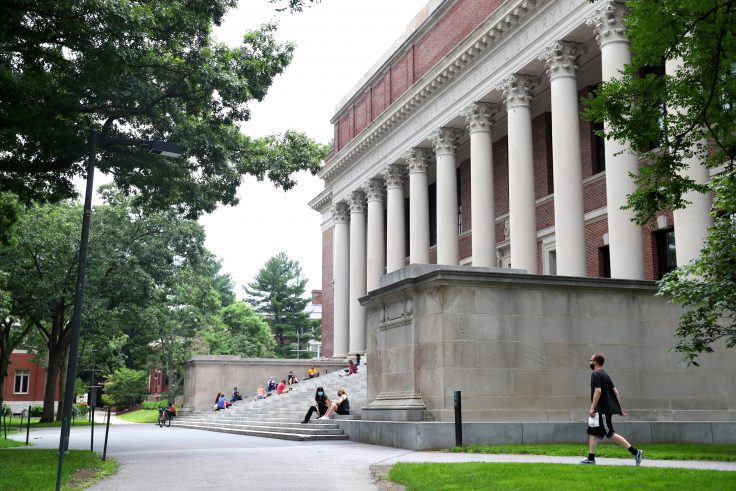The number of students being disciplined for exercising free speech on college campuses has skyrocketed in recent months as schools crack down on criticism of Black Lives Matter, according to a legal nonprofit that offers free assistance to students.
The Foundation for Individual Rights in Education (FIRE), which defends free speech on college campuses, says that it has seen an unprecedented number of First Amendment violations amid the ongoing wave of racial protests. Students and faculty can submit alleged violations of free speech to the nonprofit to ask for legal help or advice. This summer, according to FIRE's Adam Steinbaugh, "a significant portion of incidents" had to do with students getting in trouble for commenting on Black Lives Matter or related racial issues.
"Where there is conflict and controversy, censorship follows," Steinbaugh said in a statement. "A significant portion of incidents are borne from the heightened political and social tensions accelerated by the homicide of George Floyd."
FIRE reviewed 575 cases between June and August, surpassing its average of 149 summer case reviews. The organization does not respond to every request for legal assistance, though August 10 marked the group's 100th letter of concern to an institution this year, bypassing its previous annual record of 83 letters. During an online event on free speech, executive director Robert Shibley said reports are still coming in at an increased rate as schools return to session.
FIRE's caseload began to spike in June as students faced backlash for social media posts about Black Lives Matter. At Kansas State University, a student tweeted that George Floyd died because he overdosed on fentanyl and methamphetamine, not by police brutality, and that he had once robbed a pregnant woman at gunpoint. After student athletes threatened a boycott unless Kansas State took action against the student, the university said it would launch "an immediate review" of its options. FIRE sent a letter of concern to the school, saying the tweets were protected by the First Amendment.
The organization has also seen an increase in the number of faculty facing blowback from their universities. In July, FIRE contacted the University of California-Los Angeles after a professor was placed on temporary leave for saying the n-word in the context of Martin Luther King Jr.'s "Letter from a Birmingham Jail." "While the tenor of the discussion on the issues raised by George Floyd's death has changed, universities' basic obligations under the First Amendment has not," said FIRE's Peter Bonilla in a statement.
Steinbaugh said the transition to online teaching has exacerbated censorship by allowing students and professors to record each other and share clips of class to social media.
"When these exchanges are shared online (often shorn of mitigating context) or with ideological organizations, they may go viral and lead to calls for action by students, social media critics with no relationship to the institution, or by legislators," Steinbaugh's statement reads. In August, a University of Missouri professor was placed on leave after appearing to make a joke at the expense of a Chinese student, even though in context it was clear that the student took no offense. FIRE is currently investigating the incident.
"While a university has an obligation to address instances of harassment, that does not mean it must punish every joke, even if some would view it in poor taste," Steinbaugh told the Washington Free Beacon. "This is a university trying to avoid social media critics angry about an out-of-context video that purposefully cuts out the very next words of the professor."
FIRE isn't the only institution seeing an uptick in campus bias. The Young America's Foundation's (YAF) Campus Bias Tip Line has received double the number of complaints compared to previous summers. YAF spokesman Spencer Brown called the ongoing attempts of universities to control speech asinine.
"YAF's campus bias tip line has allowed us to hold university faculty and administration to account for unconstitutional and frankly asinine attempts to control the speech and even the thinking of the rising generation," Brown said. "We've received dozens of tips on this subject this summer."
FIRE's caseload has risen exponentially in the past decade. Steinbaugh blames this rise on universities attempting to avoid negative press by silencing students and faculty.
"It is possible that the increase in cases also reflects an increase in the rate at which institutions—eager to avoid controversy, turmoil, or exposure to liability—will burden expressive rights," Steinbaugh said.
